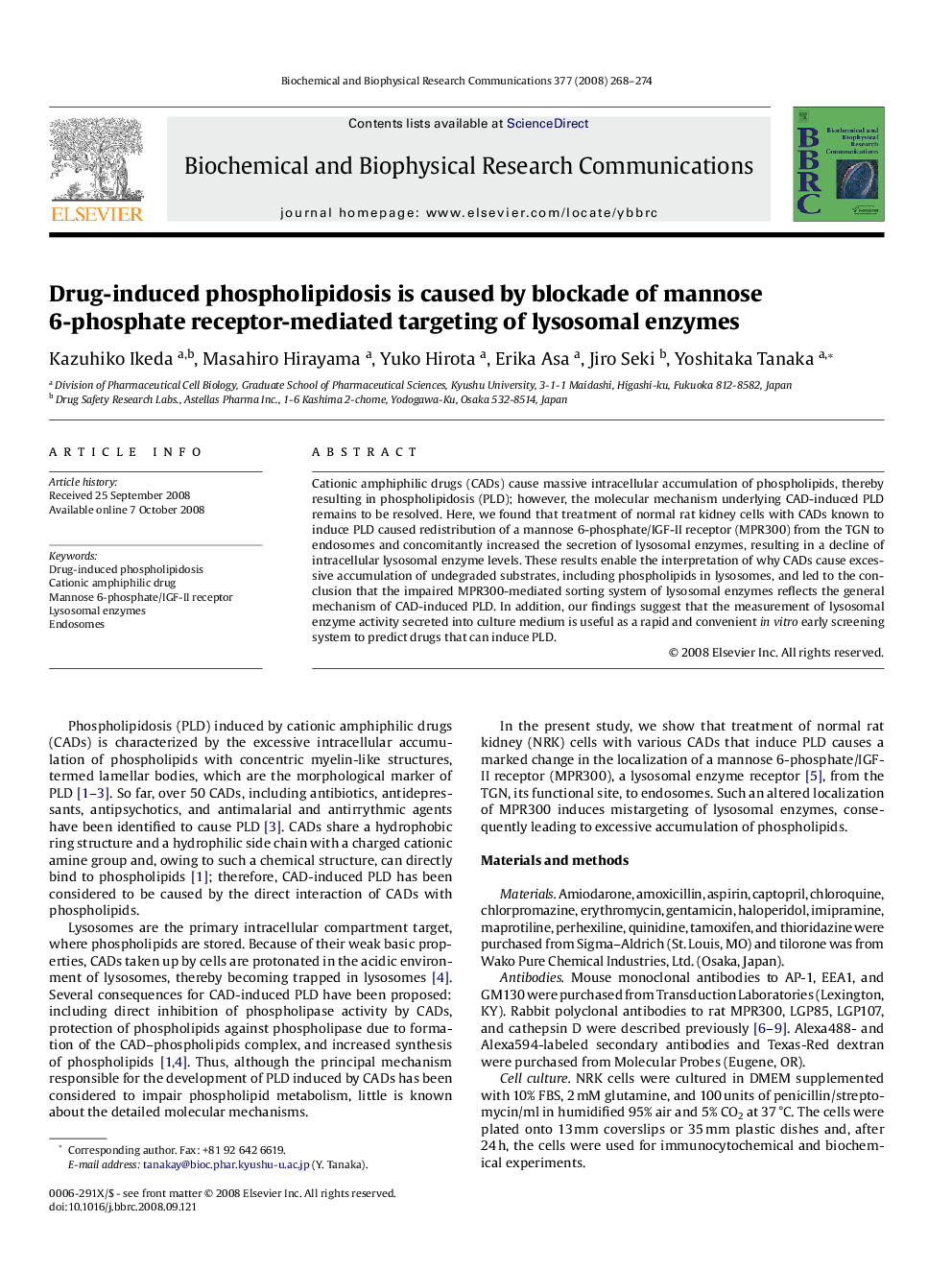| کد مقاله | کد نشریه | سال انتشار | مقاله انگلیسی | نسخه تمام متن |
|---|---|---|---|---|
| 1934233 | 1050635 | 2008 | 7 صفحه PDF | دانلود رایگان |

Cationic amphiphilic drugs (CADs) cause massive intracellular accumulation of phospholipids, thereby resulting in phospholipidosis (PLD); however, the molecular mechanism underlying CAD-induced PLD remains to be resolved. Here, we found that treatment of normal rat kidney cells with CADs known to induce PLD caused redistribution of a mannose 6-phosphate/IGF-II receptor (MPR300) from the TGN to endosomes and concomitantly increased the secretion of lysosomal enzymes, resulting in a decline of intracellular lysosomal enzyme levels. These results enable the interpretation of why CADs cause excessive accumulation of undegraded substrates, including phospholipids in lysosomes, and led to the conclusion that the impaired MPR300-mediated sorting system of lysosomal enzymes reflects the general mechanism of CAD-induced PLD. In addition, our findings suggest that the measurement of lysosomal enzyme activity secreted into culture medium is useful as a rapid and convenient in vitro early screening system to predict drugs that can induce PLD.
Journal: Biochemical and Biophysical Research Communications - Volume 377, Issue 1, 5 December 2008, Pages 268–274